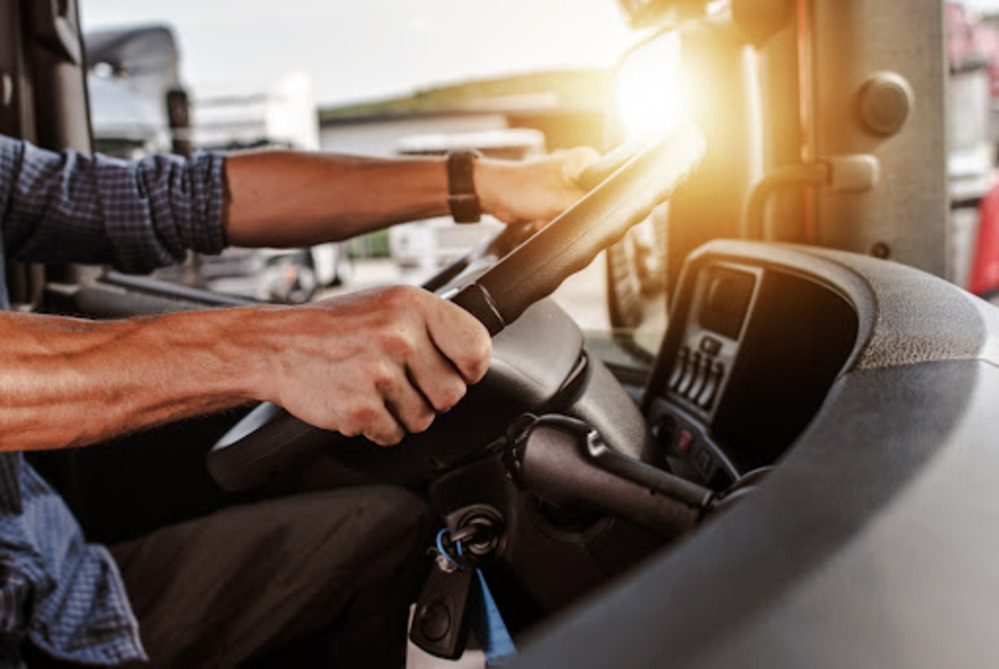Do you have a passion for driving but don’t yet have your Commercial Driver’s License (CDL)? With the right training and skills, CDLs open up a world of opportunity for individuals looking to get into the trucking industry. If you’re curious about what kind of jobs are available with a CDL, look no further! We’ve outlined ten types of transportation jobs that require or offer preference to those who hold one. Read on to learn more about these diverse roles and see how they can lead to rewarding career opportunities.
1. Truck Driver
Truck drivers are one of the most common jobs for those with a CDL. Truck drivers transport goods from one location to another, often over long distances. They must be able to operate large commercial trucks and trailers safely and efficiently, as well as follow all applicable laws and regulations. Truck drivers must have excellent communication skills and be able to read maps and use GPS systems in order to find their way from one destination to another.
2. Bus Driver
Bus drivers use their CDL to transport passengers from one location to another, often on a daily basis. These drivers must be knowledgeable of both local and federal regulations regarding passenger transportation, as well as safety procedures and practices. Additionally, bus drivers must have excellent customer service skills in order to ensure that their passengers have a pleasant experience while riding on their buses.
3. Construction Equipment Operator
Construction equipment operators use their CDL to operate heavy machinery such as bulldozers, backhoes, cranes, and other large pieces of equipment used in construction projects. They must have a thorough understanding of how each piece of equipment works in order to safely operate it on a job site.
4. Delivery Driver
Delivery drivers use their CDL to transport goods from one location to another within a specific timeframe or deadline. These drivers must be knowledgeable of local traffic laws and regulations regarding cargo transportation, as well as safety procedures when loading and unloading cargo from their vehicles. Additionally, delivery drivers must possess excellent customer service skills in order to ensure that their customers’ orders are delivered on time and without any issues or delays.
5. Tanker Driver
Tanker drivers use their CDL to transport liquid materials such as fuel, oil, chemicals, water, etc., from one location to another in large tanker trucks. They must be knowledgeable of how these liquids behave when stored in tanks under varying temperatures and pressures in order to prevent spills or other accidents during transit.
6. Tow Truck Operator
Tow truck operators require a CDL in order to tow disabled vehicles, such as cars or trucks that have broken down on the side of the road or been involved in an accident. Tow truck operators need excellent driving skills, as they must be able to maneuver their vehicle around tight spaces without damaging other vehicles or property. They must also possess strong problem-solving skills in order to properly diagnose mechanical issues with disabled vehicles and determine the best course of action for getting them back on the road quickly and safely.
7. Garbage Truck Driver
Garbage truck drivers use their CDL license to drive garbage trucks that are used for collecting trash from residential areas or businesses for disposal at landfills or recycling plants. They must understand how garbage collection works in order to ensure that trash is collected efficiently while adhering to all relevant laws and regulations regarding waste disposal methods and safety protocols when handling hazardous materials such as medical waste or industrial chemicals.
8. Logging Truck Driver
Logging truck drivers use their CDL license to drive logging trucks that are used for transporting logs from forests where they were harvested by loggers back to lumber mills where they will be processed into lumber products such as wood panels or furniture components. Logging truck drivers must have an understanding of forestry techniques so that they can properly secure logs onto their truck beds before transporting them over long distances without them shifting around during transit.
9. Dump Truck Driver
Dump truck drivers require a CDL in order to transport materials such as dirt, gravel, sand, or rocks from one location to another. Dump truck drivers need strong driving skills so they can maneuver their vehicles around tight spaces without damaging other vehicles or property, as well as good organizational skills so they can keep track of how much material is left each day after making deliveries.
10. Emergency Vehicle Operator
Emergency vehicle drivers use their CDLs to transport medical personnel or patients between locations in an emergency situation such as an accident or natural disaster. These drivers must be knowledgeable of all local traffic laws and regulations regarding emergency vehicle operations, as well as safety protocols for transporting patients and medical personnel safely between locations during an emergency situation. Additionally, emergency vehicle drivers must have excellent decision-making skills in order to determine the best course of action during an emergency.

